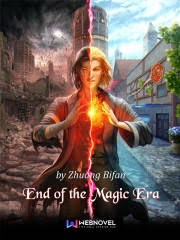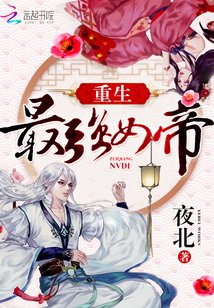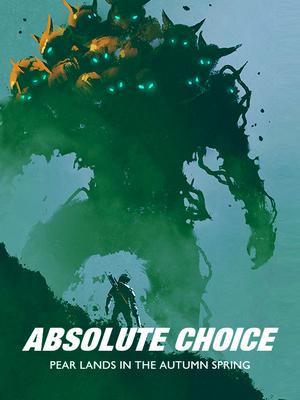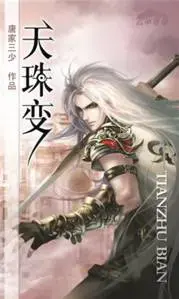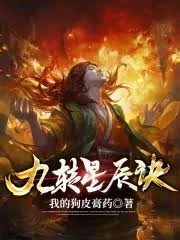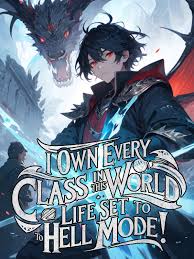The Story in 3 Sentences
A mage from a world where magic has died a slow, agonizing death is flung back thirty thousand years to its chaotic, nascent beginnings, armed with the forbidden knowledge of everything that is yet to come.
He navigates this primitive era not as a savior, but as a detached architect, leveraging his future wisdom to hoard power, dismantle arrogant institutions, and climb towards an apex throne that even history’s greatest legends never dared to claim.
His journey culminates not in a battle against a singular evil, but in a solitary, godlike transcendence that reshapes the very laws of magic, leaving behind a legacy that ensures the civilization he witnessed crumble will never follow the same doomed path.
Why It Stands Out
1. The Ultimate Cheat Code: Knowledge as a Weapon
The novel’s core appeal is its ruthless execution of the “overpowered protagonist” trope, where the cheat isn’t a system or a deity’s blessing, but the crushing weight of historical hindsight. Lin Yun doesn’t just know more spells; he understands the fundamental flaws, dead ends, and hidden potentials of every magical discipline, alchemical formula, and political structure before they are even properly formed. This transforms every encounter into a masterclass in strategic humiliation, where enemies aren’t defeated by brute force but dismantled by their own ignorance, making his victories feel intellectually satisfying rather than just physically dominant.
2. World-Building Through Archaeological Eyes
Instead of building its fantasy world from the ground up for the reader, “End of the Magic Era” presents it as a ruin to be excavated. The protagonist views every guild, artifact, and spell not for its current value, but for its future historical significance or its fatal design flaw. This unique perspective turns the setting into a living museum curated by its future’s last survivor, offering a profound, if cynical, commentary on progress, resource depletion, and the cyclical nature of civilizations. The magic system feels less like a set of rules and more like a fragile ecosystem he is desperately trying to correct.
3. The Anti-Social Protagonist as a Narrative Engine
Lin Yun’s complete emotional detachment from his new world and its inhabitants is not a character flaw to be overcome, but the story’s central driving force. His lack of personal investment in allies or enemies allows the plot to move with relentless, almost mechanical efficiency from one power-up and face-slapping scenario to the next. This creates a distinct, almost slice-of-life rhythm within the epic fantasy framework, where the drama stems not from interpersonal relationships, but from the sheer, awe-inspiring spectacle of a single mind methodically rewriting the rules of reality for his own inscrutable ends.
Characters That Leave a Mark
There’s Raymond – the earnest but outmatched son of the Merlin family’s caretaker, whose initial attempt to assert dominance over the seemingly weak Mafa Merlin ends in utter, humbling defeat, setting the tone for countless similar encounters and inadvertently becoming one of the first to witness the terrifying depth of the protagonist’s hidden power.
You’ll meet William Merlin, who as Mafa’s ambitious cousin and a Master Alchemist in his own right, represents the pinnacle of the current era’s achievement, only to find his life’s work rendered obsolete and his pride shattered by the casual genius of a man who treats world-shattering alchemical breakthroughs as mere stepping stones.
And Pavey? They’re the one who, as Raymond’s father and a loyal retainer to the fallen Flashing Gold Chamber of Commerce, embodies the old guard’s desperate struggle for survival, his unwavering loyalty and pragmatic service providing a rare, grounded counterpoint to the protagonist’s otherworldly ambitions and the petty squabbles of the magical elite.
The Flaws Fans Debate
The narrative is bloated with excessive, repetitive descriptions and internal monologues that pad the chapter count without adding meaningful depth, turning what could be a tight 500-chapter epic into a grueling 1400+ chapter marathon.
The protagonist’s overwhelming, unchallenged power from the outset eliminates any real sense of tension or stakes, reducing the plot to a predictable, monotonous cycle of arrogant challengers appearing only to be effortlessly and elaborately humiliated.
The supporting cast, particularly the antagonists, are often written as cartoonishly stupid and arrogant, existing solely to be “face-slapped,” which undermines the world’s credibility and makes their persistent underestimation of the protagonist feel less like dramatic irony and more like lazy writing.
Must-Experience Arcs
Ch. 1–446: Andlusa Kingdom Arc – Mafa Merlin’s rise from a bankrupt, ridiculed 9th-rank apprentice to the undisputed apex of the kingdom’s magical world, systematically dismantling rival guilds and exposing the fragility of its established powers through a series of meticulously planned humiliations and power plays.
Ch. 447–647: Raging Flame & Winter Planes Arc – The protagonist ventures beyond the mortal realm into volatile, elemental dimensions, shifting the scale of the story from political maneuvering to survival and conquest in alien, magic-saturated environments, where he forges legendary artifacts and confronts ancient, planar entities.
Ch. 1179–1452: Crisis & Undead Plane Arc – In the story’s endgame, Lin Yun confronts the existential threats that mirror the apocalypse he fled, delving into the nightmarish Undead Plane to secure the ultimate power, culminating in a solitary, transcendent ascension that redefines the very concept of magic for all future eras.
Killer Quotes
“If I claim second, nobody dares claim first!”
Cultural Impact
The novel has cultivated a dedicated, if sometimes critical, international fanbase, with its “face-slapping” scenes becoming a widely recognized, if polarizing, hallmark of its style within the web novel community.
Its massive chapter count and reputation for being both incredibly satisfying and frustratingly repetitive have made it a frequent topic of discussion and recommendation, often cited as a quintessential, if flawed, example of the overpowered transmigrator genre.
The existence of an active, reader-maintained wiki is a testament to the depth of its world-building and the community’s effort to catalog its sprawling lore, character relationships, and complex magical systems despite the narrative’s pacing issues.
Final Verdict
Start Here If You Want:
A power fantasy where the protagonist’s intellect and future knowledge are the ultimate weapons, delivering deeply satisfying, systematic takedowns of every opponent.
A unique perspective on world-building, where the setting is experienced as a historical artifact to be corrected rather than a new world to be explored.
A story that prioritizes the relentless, mechanical progression of its protagonist’s power above all else, offering a strangely compelling, low-stakes epic.
Study If You Love:
Deconstructions of magical systems and civilizations, presented through the lens of a protagonist who has seen their ultimate failure.
The narrative potential of a completely amoral, detached protagonist whose lack of personal growth is the point, not a flaw.
The cultural and structural tropes of Chinese web novels, particularly the “face-slapping” and transmigration genres, executed on a grand, almost absurdly ambitious scale.
Avoid If You Prefer:
Tightly paced narratives with genuine tension and stakes, where the protagonist faces meaningful challenges and setbacks.
Stories driven by deep character relationships, emotional arcs, or romantic subplots.
Plots where antagonists are complex, intelligent foils rather than simplistic, arrogant caricatures designed for humiliation.
